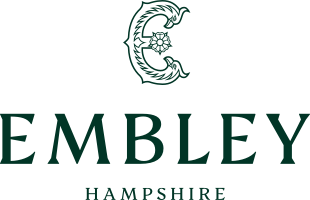OK, so the phrase ‘I am my world’ may not be quite what Wittgenstein meant but it seems to be used to come close to what he was trying to say about our sense of ourselves and our understanding of the world being conditioned by the language we use to describe it.
The limit of my language is the limit of my world, well is it? I don’t think so. Now if I disagreed with the great man he would ask me to give an example of where I have experiences I cannot use language to describe. Now the discerning among you will have spotted the problem. If there are experiences I can have as a human that are beyond language, by definition I will be unable to describe them… because they are beyond language.
It has been a funny old few weeks at Embley. Last week ended with me observing a colleague at the Prep being followed by five ducks across the car park; you would think I should know what is going on, sometimes better not to ask (I never did get the hang of Fridays). This week began with former international rugby captain Sam Warburton and his team joining us on Monday to begin a rugby training programme that will roll out to the whole school but which is focused on attitude, commitment and personal bests in the context of building teams. We have had field trips to London with Art and Embley Asset Management hosted by Janus Henderson, while cricketing success followed U12 and U13 teams against KES and Walhampton respectively. Planning for Speech Day, Sports Days and Joseph are in full throttle while examination feedback has been disseminated to Senior School children following exams last week.
But what has any or all of that to do with the limit of language and me being my world? Simple really, the uncompromising reality of existence is that I am in it and it is up to me to navigate my path through it. Responsibility for how I do that rests with me. I worry about the really fearful example of those in public life who look to deflect, avoid or evade responsibility for the actions they took. In the course of children navigating school life, either inside or outside of the classroom, they too make mistakes, things go wrong, but what should we do? How helpful is it to endlessly run to excuse or bat away what has happened and say they are struggling with x, y or z; it is the influence of social media, friends who led them astray or they are feeling stressed and worried.
My ability to swing my arm stops where your nose begins; my bad day is not your problem and may not even be your fault. It is incumbent for us to look to ourselves and think about our own responsibility. Humbly to look inside our motivations; our effort levels and our choices, the better to discern how we might get better and be the best version of ourselves. Hiding from this and evading it seems to me a moral and modern malaise, a malady of mockery where standards are held until such time as they no longer suit after which new ones rise like a fake phoenix. “These are my principles; if you don’t like them, I have others and am happy to change.” OK, so you don’t have any principles then. Sometimes life is tough, there is no sugar coating it and it really doesn’t help children for the keyboard warrior to soldier into battle, the better to protect. First let’s ask what actually happened, then what do we do about it? The most effective results are had when this honest introspection, which avoids nauseous navel gazing, allows us to see reality as it really is and to deal with it.
Warburton went further. He looked at how the actions of individuals affect teams. The consequence of getting sent off; of losing your discipline punishes the whole not just the part. His approach was refreshingly simple; honest accountability focused on each individual getting better is the path to collective and individual success. We spoke briefly of O’Connell’s comment to Gatland on a Lions tour about ‘being the best at all the things that take no talent’. Simple honest accountability. Stepping up and admitting what went wrong is not a medieval imprisonment in stocks or an emotional admonishment but a clear-eyed explanation of the state of affairs that liberates all involved. There is no trauma in truth telling compared with the distress of fabrication. I could go further and tie in a Paul Tillich notion that distinguishes being and non-being. The obscuration or obfuscation placed in front of me is a concealment of the truth, if the truth is our understanding of all that exists, all that is the case, then the obfuscation is not that. I think there is a strong correlation between the telling of the Truth and the sense I have of myself. The economy of language that goes into shading ‘truth’, colouring perspectives or challenging the tellers of Truth with vitriol, the better to discredit what is being said is highly dangerous. In asking me to believe it, you are taking me away from the Truth and from authenticity; you are asking me to live your lie. Much better that I tell the truth, be accountable for me and hold on to being my own world.
MORE BLOGS —
Parent wants
Been a busy few weeks – though when isn’t it? I have spent quite a bit of time speaking with Prep School Heads.
Bridges
In January 1942, in a small suburb just outside Berlin, a group of engineers, scientists and logicians gathered to map out a strategy that would change the face of Europe.




